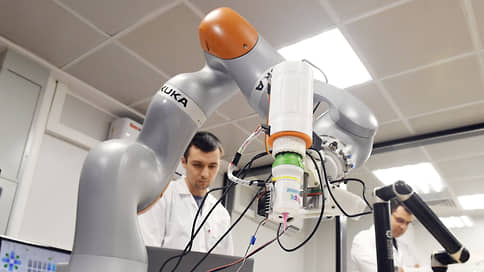Science was measured by a new rating
[ad_1]

United Russia ranked the regions of the Russian Federation in terms of the level of support for young scientists. The Kemerovo region took the first place, while Moscow took only the 16th position. According to the authors, the list should stimulate the regions to create an attractive environment for young professionals and reduce the outflow of scientific personnel. However, the Ministry of Science and Higher Education of the Russian Federation questioned the correctness of the data on the basis of which the rating was compiled, and the Moscow Department of Education and Science stated that the criteria were illogical.
On April 11, Alexander Mazhuga (ER), First Deputy Chairman of the State Duma Committee on Science and Higher Education, presented rating regions of Russia in terms of support for young scientists. It lists 77 subjects of the Russian Federation out of 89. The rating was compiled for the first time – based on data for 2022. Regional authorities were asked to provide data on measures to support young professionals; those who decided to take part in the rating independently collected and sent the information requested by the party.
The evaluation criteria were: the percentage of researchers under the age of 35 and 40 of the total number of scientists working in the region; availability of regional science support funds, programs for providing young professionals with housing and grant support for their work.
The leaders were Kuzbass, Novgorod and Kaluga regions, as well as the Republic of Bashkortostan.
Moscow is located only on the 16th position out of 77.
According to Mr. Mazhuga, the main goal of the rating is “to stimulate the regions to form an attractive environment for the life and work of young scientists” in order to reduce the outflow of scientific personnel from there. Separately, the deputy noted that the creators “fully trusted the data provided by the subjects, although they saw inaccuracies and errors in them that had to be quickly corrected.”
Member of the State Duma Committee on Education Larisa Tutova (ER) believes that the data collected for the rating will help improve the party bill on the status of a young scientist, which is currently under consideration in the second reading. The deputy said that when creating the rating, she managed to collect and analyze regional measures to support young professionals and understand which of them are the most effective. “Based on this information, we are supplementing the draft law, which should ultimately increase the prestige of the profession of a scientist,” said Ms. Tutova.
Nevertheless, the data on the basis of which the rating was compiled caused distrust among the Deputy Minister of Science and Higher Education of the Russian Federation Olga Petrova: “I recently served as the Minister of Education of the Nizhny Novgorod Region and I remember that we had much more grants to young scientists. Let them be small, 300-500 thousand, but more.”
The deputy minister also doubted whether the number of young specialists from the Tomsk and Novosibirsk regions was indicated correctly – it seemed to her that this number was noticeably underestimated.
“We need a more thorough examination in order to work out the rating and make it really significant. Because under the current criteria, it is easier for regions where there are fewer scientists and fewer universities to get to the top of the list,” Ms. Petrova added.
Deputy Head of the Department of Education and Science of Moscow Alexander Tverskoy was surprised by the 16th place of the capital in the ranking. In his opinion, in Moscow there are “unprecedented measures to support young scientists” and “grants and awards are allocated for very large sums.”
Mr. Tverskoy noted that he still did not quite understand the structure of the rating: “In order to improve the place, we either need to reduce the number of scientists, or increase the number of support measures, leaving the amount of funding the same.”
He suggested that the most effective way to get to the top was to split large grants into smaller ones and give them to more scientists. Mr. Tverskoy considers this approach unsuitable for real improvement of support measures, so the rating criteria seemed illogical to him.
Concluding the discussion, Alexander Mazhuga said that the rating should be made annual and compared with the National Rating of Scientific and Technological Development (.pdf), which is being prepared by the Ministry of Education and Science. Recall that the first positions in it are occupied by Moscow, St. Petersburg and the Tomsk region, which were not even included in the top 10 of the United Russia list. “It is interesting to see in dynamics how the measures to support young scientists affect the technological success of the region as a whole,” said Mr. Mazhuga.
[ad_2]
Source link








